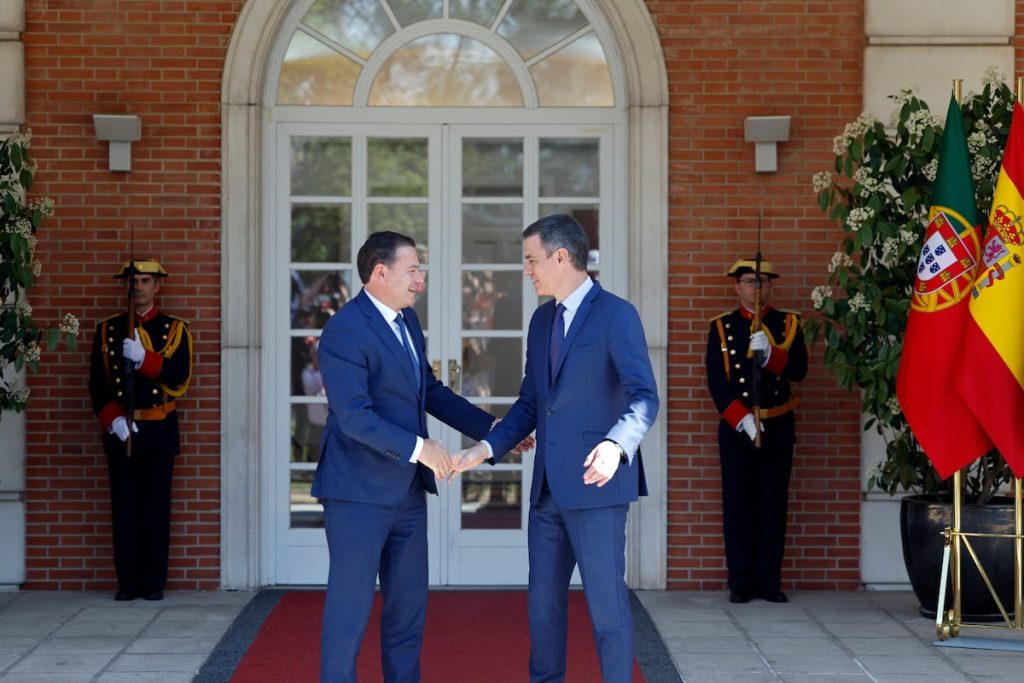The Spanish president, Pedro Sánchez, now has a new counterpart in Iberian summits, the center-right Prime Minister of Portugal, Luís Montenegro. Sánchez had previously engaged in five bilateral meetings with the socialist António Costa. However, now, the relationship between Sánchez and Montenegro is still taking shape, with both sides emphasizing the strong ties and common interests they share to defend at the European Commission. Spain is Portugal’s top customer, receiving a significant portion of Portuguese exports, while Spain conducts more trade with Portugal than with all of Latin America combined. Relations between the two countries are said to be unaffected by political fluctuations, as demonstrated by past cooperation between the socialist Prime Minister António Guterres and former Spanish President José María Aznar, culminating in the signing of the Albufeira Convention regulating shared river management.
Luís Montenegro’s first official visit abroad after taking office was to Madrid to meet with President Pedro Sánchez. The two countries are closely aligned on multiple aspects of international politics, although Portugal has not gone as far as Spain in officially recognizing the Palestinian state. The upcoming official declaration will address a wide range of global issues, from supporting the failed Mercosur agreement to advocating for a peace conference on the Middle East. The strategic agenda for the summit in Faro includes key topics, such as the construction of two new international bridges between regions in Portugal and Spain, which have been approved by the Spanish government. These infrastructure projects aim to enhance connectivity and facilitate travel for residents living on both sides of the border, addressing longstanding demands for increased cross-border accessibility in the region.
Efforts are also being made to revise the management of the Tagus and Guadiana rivers, with Spanish Vice President Teresa Ribera and Portuguese Environment Minister Graça Carvalho ironing out remaining details on ecological flow rates and water extraction fees. Discussions will also cover energy interconnections with France and the green hydrogen corridor H2med. Infrastructure development remains a key focus, with commitments expected to advance new highway sections to enhance connectivity between the two countries in Castilla and León and Extremadura. Spain is interested in expediting the high-speed rail construction between Lisbon and the border to improve rail mobility between the two Iberian capitals by 2030. Additionally, both countries are working on the high-speed rail connection between Lisbon and Porto, crucial for Portugal due to its high population and economic concentration.
According to Xoan Vázquez Mao, the Secretary General of Eixo Atlântico, which represents 37 cities in both countries, the high-speed rail projects do not compete with each other. Progress has been made on the rail corridor between A Coruña and Lisbon, with the only remaining detail being the location of a new railway bridge over the River Miño, which may be announced during this summit. The strategic agenda also includes discussions on sustainable mobility, climate change efforts, and the recovery from the COVID-19 pandemic. The summit reflects the commitment of Spain and Portugal to strengthen their bilateral partnership and work together to address regional and global challenges, showcasing a shared vision for the future of the Iberian Peninsula.















